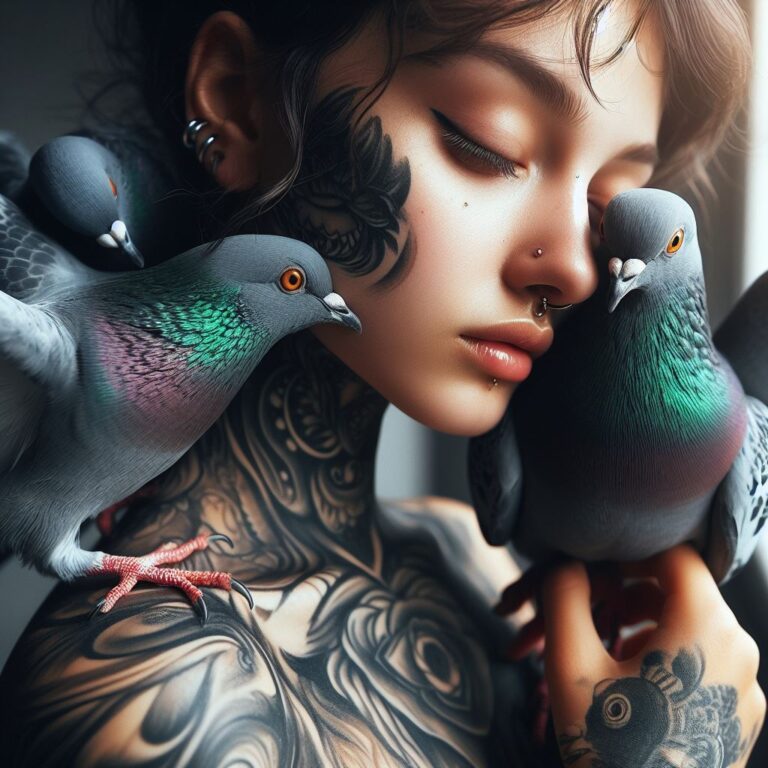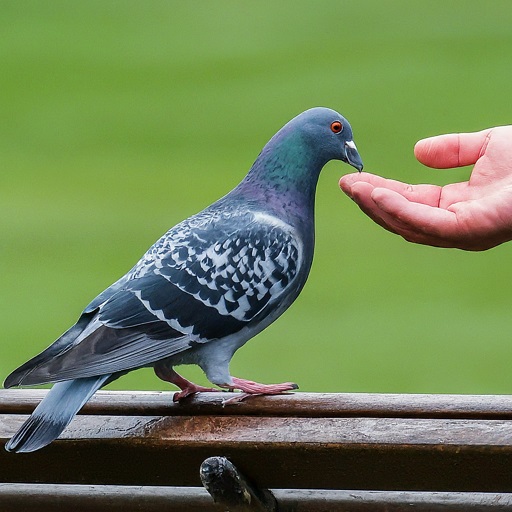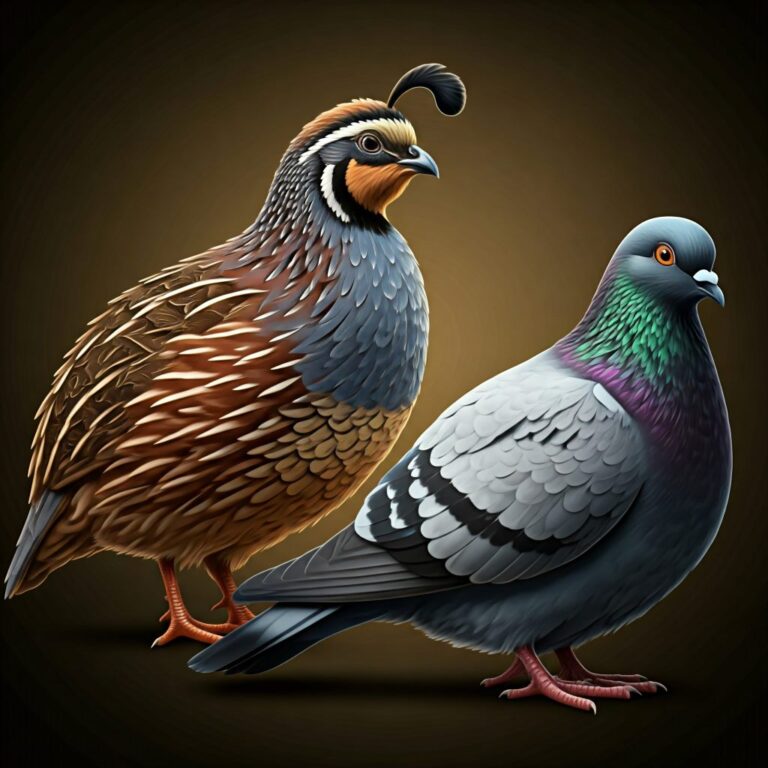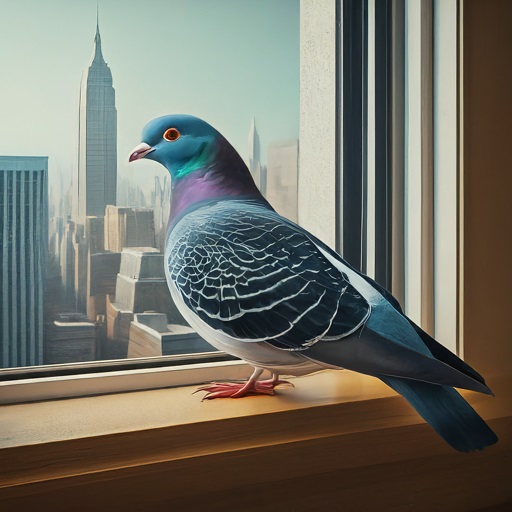Do Pet Pigeons Poop Everywhere?
When adopting a pigeon, many people often avoid one as they are sometimes perceived as Messy birds known for their poor habits. Many people wonder, ‘Do Pet Pigeons Poop Everywhere.’ In this article, I will help you dive into the world of pet pigeons, their natural behavior, and their pooping habits. We will also uncover whether these birds are truly as untidy as they seem or if there are ways to mitigate/manage their hygiene effectively. Before I tell you the tips to manage your pigeon hygiene effectively, let’s begin with understanding: ‘Do pet pigeon poop everywhere.’
Why Pet Pigeons Poop Everywhere?
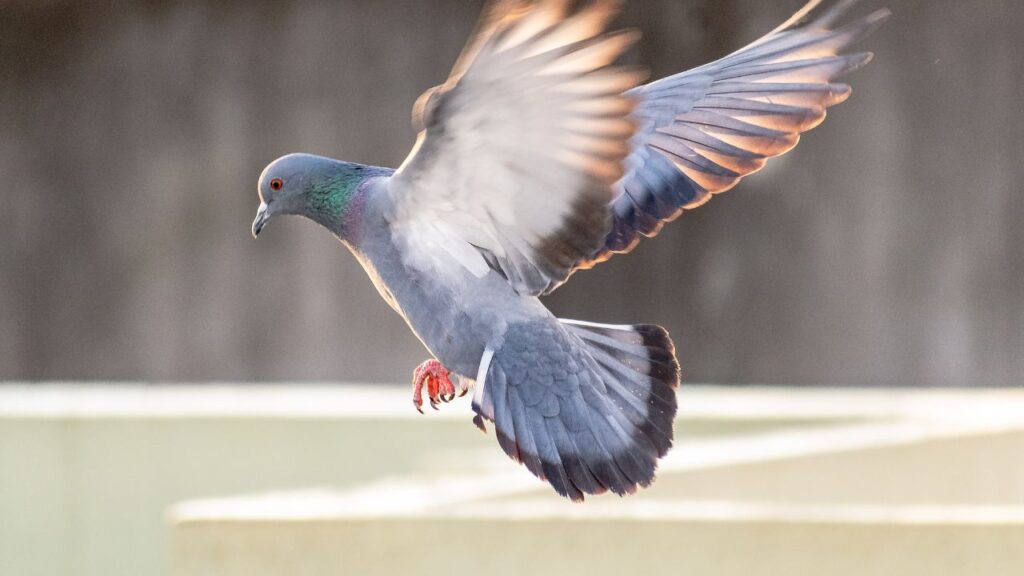
Just like any bird, pet pigeons do produce poop regularly. However, whether they poop everywhere or not depends upon how you house them, train them, & care for them. If you keep your pet indoors and fail to provide them with a designated area for the toilet, they may poop on various surfaces.
You should know that pigeons are not like cats or dogs who can be potty trained. So if you don’t provide proper arrangements, your pet pigeon will likely poop wherever They purge or walk. Also, if you allow your pigeon to roam freely outdoors, they may poop in different places, much like wild pigeons. Pigeons are instinctive to leave droppings wherever they go, which further helps them mark territory and communicate with other pigeons.
Hence, your question answer depends on how you have housed your pet. It would be best to deter wild pigeons from assessing your property, as their dropping may corrode metal surfaces, paints, and cement. To help guide you with pigeon nest removal, I recommend that you read ‘How to Get Rid of Pigeon Nests?’ as well as ‘How to stop pigeon nesting.’
If you think about why you should consider removing pigeon nests from your property, you can check my guide on ‘Why Are Pigeon Nests So Bad.’ However, before you consider removing a pigeon, I recommend you check ‘What Happens If You Destroy a Pigeon Nest‘ apart from the immediate effect on the bird.
Understanding Pigeon Pooping Habits
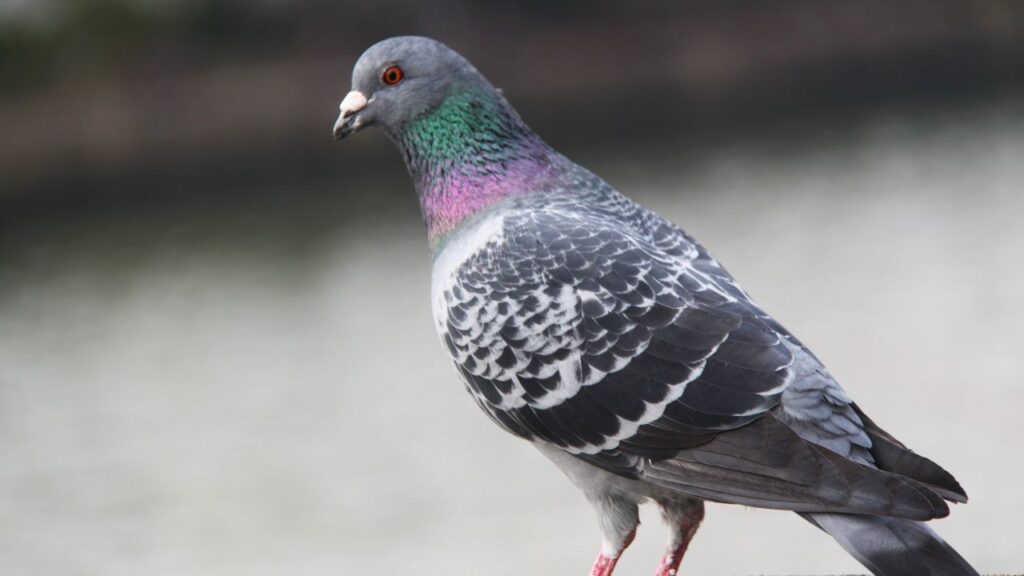
Frequency of Pooping
One of the primary concerns people often have about pet pigeons is pooping frequency. Even though it may seem like your pet pigeons are consistently relieving themselves, their pooping habits are regular & can be influenced by many factors. Depending on their food intake, a pigeon can poop about 15-30 times a day.
Also, a study published in the Journal of Orthology found that the frequency of pigeon pooping is directly linked to their metabolism & the amount of food they consume. Well, that’s obvious, and if you feed your pet with the right diet, you can control their poop frequency & manage proper cleanliness. I will advise you to put a liner beneath their cage or Aviary to effectively collect the droppings and clean them later.
Pigeon Poop Size & Texture
When it comes to understanding pigeon poop size & texture, it may surprise some people. The poop of pigeons is usually larger & more solid than what is commonly seen in other Birds. You should note that pigeon poop can consist of three parts: solid feces, urine & clear liquid. After doing the research, I learned from the University of California, Davis, that pigeon droppings could contain higher uric acid concentrations, giving them a distinct white color and stocky texture. This characteristic is why pigeon droppings can be more challenging to clean than other birds.
Potty Training Pigeons
As I told you earlier, pigeons cannot be potty trained. Whether it is possible to potty train this bird is a question that prospective pigeon owners have asked. Although pigeons can’t be potty trained in the traditional sense, some pigeon enthusiasts have had success in creating designing zones for their feathered friends.
According to the anecdotal evidence the experienced pigeon owner shared on pigeon talk, a popular online forum, positive reinforcement is important to encourage your pet to poop in a specific area. You should consider placing a shallow tray filled with sand or cat litter in the desired location to attract the pigeon to use it as their designated pooping spot.
Pooping in Their Living Space
As I told you earlier, pet pigeons will likely poop predominantly in the living area, including coops, Aviary, or cages. Therefore, make sure that you pay attention to regularly cleaning & maintaining the living space, which is crucial to keep it hygienic & odor free. A study conducted by the pigeon cote, a pigeon-related Research organization, maintains that clean living space for pet pigeons is vital for their well-being and reducing the risk of disease outbreaks. Below I’m mentioning a proper cleaning schedule for pigeon enclosure or cage, whatever you have.
| Day of the Week | Cleaning Tasks |
| Monday | Remove & replace old bedding material. |
| Tuesday | Clean food & water dishes thoroughly. |
| Wednesday | Scrub perches & cage bars with a bird-safe cleaner. |
| Thursday | Vacuum or sweep the floor of the enclosure. |
| Friday | Disinfect the entire enclosure. |
Pooping Outside Their Living Space
It’s not uncommon for pigeons to still venture outside their designated space to poop, even with a clean living area. This behavior is more common in pigeons that can wander freely or access larger outdoor enclosures. To minimize this issue, I highly advise placing a perch strategically outside their living space to encourage pigeons to use these designed perching areas for pooping. Another great way is to apply bird repellents in undesired locations, which deters pigeons from choosing those spots for their business. Below I have mentioned five effective methods to deter pigeons from pooping in undesirable locations.
- There are many types of visual deterrents, like pigeon decoys, shiny objects, or Predator silhouettes, to scare pigeons away from certain areas.
- You can also consider applying sticky bird-repellent gels or tapes on surfaces where pigeons frequently land to discourage them from perching.
- We’ve recently installed motion-activated sprinklers to startle a pigeon whenever they approach an unwanted location.
- Many ultrasonic bird-repellent devices also emit sound frequencies that are uncomfortable to pigeons.
- Also, there are some basic methods like placing pigeon spikes or netting on ledges & other flat surfaces to make it less appealing for pigeons to roost & perch.
Health Considerations
Even though pigeons are known to make wonderful pets, you must be aware of the potential health risk associated with handling or cleaning their droppings. As I told you in the earlier section, pigeon dropping can contain many pathogens that may pose health risks to you and your Birds. In fact, in a study conducted by the Centers for disease control & Prevention, pigeon dropping is known to harbor fungi & bacteria that may cause respiratory sickness in humans when inhaled.
To mitigate this kind of health risk, I will highly advise you to handle your pigeon droppings with care & maintain proper hygiene. When cleaning their cage, wear gloves on your hand & mask on your face to prevent inhaling any substances from their cage. Also, please wash your hands properly after handling pigeons or cleaning their leaving area. Below are a couple of health concerns often associated with pigeon droppings.
| Health Risk | Pathogens |
| Respiratory illnesses | Histoplasma capsulatum (fungus) |
| Eye infections | Chlamydophila psittaci (bacterium) |
| Skin irritation | Cryptococcus neoformans (fungus) |
Maintaining a Hygienic Environment
To maintain a hygienic environment for your pet pigeon, strategically place their cage & perches. It would be best to place your pigeon cage in an area with good ventilation & natural light to help further reduce odor and prevent the build-up of harmful pathogens. In addition, you should consider providing various perching options both inside & outside the cage to encourage pigeons to poop in designated spots and minimize the spread of dropping. A clean living environment is not only essential for the health of your pet pigeon but also for your comfort & enjoyment. Therefore, you need to ensure that you never neglect regular cleaning & sanitation, which is part of the routine for every pigeon owner. Below, I mention some cleaning supplies and their purpose in pigeon enclosures.
| Cleaning Supply | Purpose |
| Bird-safe cleaner | For scrubbing cage bars & perches to remove dirt & bacteria. |
| Disinfectant | To kill germs & bacteria in the pigeon enclosure. |
| Vacuum or broom | For removing dust, feathers, & other debris from the floor. |
| Bedding material | To provide a clean & comfortable surface for pigeons to rest on. |
| Trash bags | For easy disposal of waste & soiled bedding. |
Conclusion
I hope now you know ‘do pet pigeons poop everywhere’ or not & how to mitigate this problem. In conclusion, pigeons are wonderful companions that can bring joy to their owners. Even though they are known to poop regularly, you can effectively manage their hygiene with proper care & maintenance. However, ensure you also understand the pigeon’s behavior & Instincts, like their homing instincts.
I have given my best to give you all the information on the question, ‘Do pet pigeons/s poop everywhere.’ If you find the article helpful, then consider sharing it. Your share will help many people learn the importance of regular cleaning, appropriate cage placement, & positive & enforcement, which can significantly contribute to keeping pigeon leaving areas clean & hygienic for birds as well as for themselves.
Always remember that responsible pet ownership involves providing love & care and ensuring a healthy & safe environment for our feathered friend. Do check my other helpful guide on the care & management of pigeons as pets. See you in the next post, till then, take care & goodbye.



